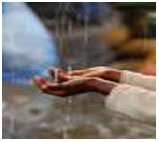The Stick/dula/ or the Stone/dΪngay/?: A Cultural Archaeology

When a simple tool reveals a civilization's soul Philosophical questions delight precisely because they unsettle us. They stretch minds, spark wit, and often deliver unexpected humor. Consider biology’s eternal riddle: Which came first—the chicken or the egg? Student answers range from lexical logic (“C comes before E!”) to culinary pragmatism (“Both are delicious!”). My favorite? “ Egg at breakfast, chicken at dinner—case closed.” Charm overrules coherence every time. Now, let’s turn this playful inquiry toward Ethiopia’s past: Which tool anchored human ingenuity first—the stick ( dula ) or the stone ( dïngay )? Historians debate fiercely. Some champion the dula as humanity’s earliest ally. Others counter that stones endure millennia while wood decays—suggesting a “Stone Age” predating any hypothetical “Stick Age.” Yet walk through Ethiopia today, and the dula whispers an older story. Now, applying that same spirit of cu...









